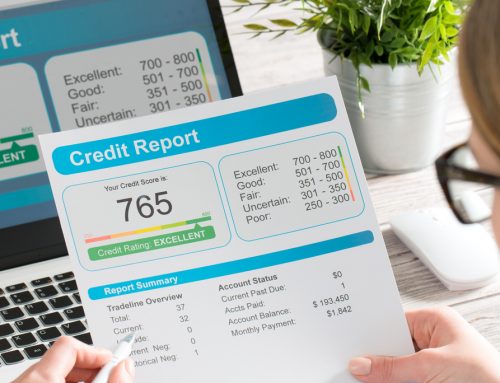
The higher your credit score, the easier it will be to secure a personal, student, business loan or mortgage.
The credit score required for you to qualify for a mortgage will vary depending on the loan program. For example, Michigan FHA loans (which are meant to assist those with less than perfect credit) will require a score of 580. The minimum credit score for conventional loans is usually 620 or higher.
Keep reading to learn more about what factors impact your credit score and what steps you can take to maintain or improve your score.
FICO Credit Score Factors
Payment History (35%)
This revolves around the ability to pay your bills on time. If you have any late payments or have filed bankruptcy, your score will be affected.
Amount Owed (30%)
The lower your credit balance the higher this score will be.
Length of Credit History (15%)
The longer you have had any lines of credit open, the higher the credit score.
New Credit (10%)
10% is directly related to the new types of credit you have implemented into your balance.
Credit Mix in Use (10%)
10% of your FICO score is based on your experience with different types of credit such as credit cards, retail accounts, mortgages and installment loans.
Applying for a Michigan Home Loan? How to Improve Your Credit Score
Resolve Late Payments
As stated earlier, 35% of your FICO score is based on your ability to pay your bills on time. Set up payment alerts or automatic debits for recurring bills to ensure enough money is in your account and it will be paid on time. Any time you have a late payment, contact the creditor and ask if they can forgive it. If you absolutely have to be late, getting it paid within 30 days usually means it will not be reported to credit bureaus, but you may have to pay a late fee.
If you have any outstanding debts that are beyond 30 days, contact the creditor to inquire about a payment plan.
Get a Credit Card/Secured Credit Card
If you don’t have a credit card, it’s a must for building a solid credit history. Making small purchases with your card and paying if off every month is one of the best things you can do.
If you are already overwhelmed with other debt, try a secured card. A secured card requires you to deposit a specific credit line amount into an account to “secure” trust of payment. Demonstrating that you are able to make purchases on your card and repay the money each month can really help you boost your credit score – even if it is your own money that you are paying back.
Know the Difference Between a Hard and Soft Credit Inquiry
Inquiries into your credit history could cost you valuable points. However, it is important to know the difference between a hard and soft pull of information.
A hard inquiry is any time you are applying for more debt. This could be anything from a retail account to a mortgage loan. Hard inquiries can result in a 2-5 point decrease in your credit score.
A soft inquiry on the other hand, could simply be checking your credit score online. There is a common misconception that soft inquiries like checking your credit score will have the same impact as hard inquiries, when in reality, soft inquiries will not result in any point deductions. In fact, your creditors may do routine soft inquiries for continued risk assessment in order to determine if you are eligible for a limit increase.
Contact a Michigan Home Loan Expert for More Information
As you can see, there are several factors that can influence your credit score. If you are considering applying for a mortgage but you are not sure what your credit score is or you would like more information on Michigan loan programs, contact Julie Krumholz from Superior National Bank.
Julie has over 30 years of experience with Michigan home loans and has several loan programs available to help people with lower credit scores or those that need down payment assistance.





